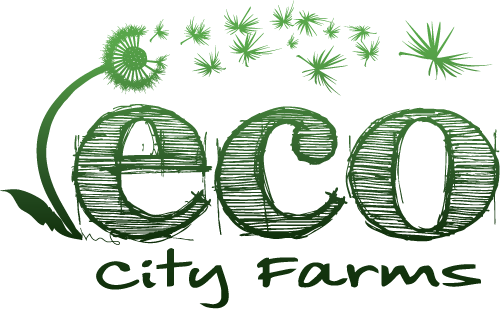Joel Salatin on Growing Food Organically
Can we provide the world’s food by growing organically? Joel Salatin thinks so – here’s why…
 Truth No. 1: Nearly half the world’s edible food never gets eaten. It spoils in warehouses, never gets picked, bouncing along during long distance transportation it gets rejected due to slight blemishes or goes into the garbage due to confusion over “sell by,” “use by,” and “best by” dating labels. Much of what goes on plates never gets eaten. Peeling and prepping destroy more mountains of edible food.
Truth No. 1: Nearly half the world’s edible food never gets eaten. It spoils in warehouses, never gets picked, bouncing along during long distance transportation it gets rejected due to slight blemishes or goes into the garbage due to confusion over “sell by,” “use by,” and “best by” dating labels. Much of what goes on plates never gets eaten. Peeling and prepping destroy more mountains of edible food.
Truth No. 2: Distribution is the only reason people are hungry; nobody is hungry due to a shortage of food. If you could wave a magic wand and double worldwide food production tomorrow, it would not affect one empty stomach. Mountains of food rot every day. A gun-toting Somalian stopping a Red Cross truck on its way to a refugee camp is not a food production problem.
Truth No. 3: There is plenty of land for farming. Unused land is everywhere. The U.S. has 35 million acres of lawn. How about all those irrigated golf courses around Phoenix, Az.? The U.S. dedicates 36 million acres to housing and growing feed for recreational horses. I’m not against lawns or horses, or golf for that matter, but to run around like Henny Penny proclaiming “we’re running out of food” is a bit premature when actually on these lands alone we could grow all the food America needs. Edible landscaping should be promoted by everyone. In Italy, the expressway intersections are divided into quarter-acre gardens tended by urbanites who spend their weekends connecting to their ecological umbilical: building community, having fun, growing food. Forget the batwing mowers—grow squash instead.
Truth No. 4: Science and technology have caught up with natural farming. Scientific aerobic composting, coupled with new biological understanding and high-tech infrastructure like drip irrigation, hoop houses, and micro-chip electric fence energizers give us tools and techniques Grandpa would have given his eyeteeth to have. The agri-industrial complex routinely accuses me of being a Luddite and wanting to move all of us back to swine cholera, brucellosis, wash boards, and one bath a winter. This condescension stems from the unfair perception that our side is stuck at 1900 in all aspects of life if we don’t accept chemical fertilizers and genetic engineering.
The fact is that composting is a modern innovation. Sir Albert Howard introduced the world to scientific aerobic composting in 1943, at the height of World War II. His research capped a frenetic search beginning around the turn of the century for an answer to the soil fertility problem. By 1900, people universally understood that neither the United States nor Australia could solve their soil deficiencies by simply moving west—there was no more west to exploit.
Truth No. 6: We don’t need vaccines and antibiotics to keep farm animals healthy. The rampant plant/animal/human diseases common in the early 1900s were symptomatic of animal and human crowding during the early part of urbanization and industrialization.
When people flocked to factories in the cities, they preceded electrification, refrigeration, stainless steel, piped sewage, electric fence, and canvas shelters.
During that three-decade period animals were crowded into muddy fields, people – lacking lights — couldn’t see the dirt in their homes. It took several decades for infrastructure and technology to catch up with the urbanization/industrialization innovation.
The high tech gadgets that ecology-friendly farmers enjoy today allow us to spin circles around the scale and hygiene of grandpa’s farm. Thanks to electric fencing, polyethylene pipe, and portable shelters, we don’t need prophylactic vaccines and antibiotics to keep our animals alive and healthy. For the first time in human civilization we can raise more animals, on a commercial scale, in a more sanitary, hygienic, animal-friendly way than anyone could on a homestead a century ago. That’s pretty cool. And it does feed the world.
